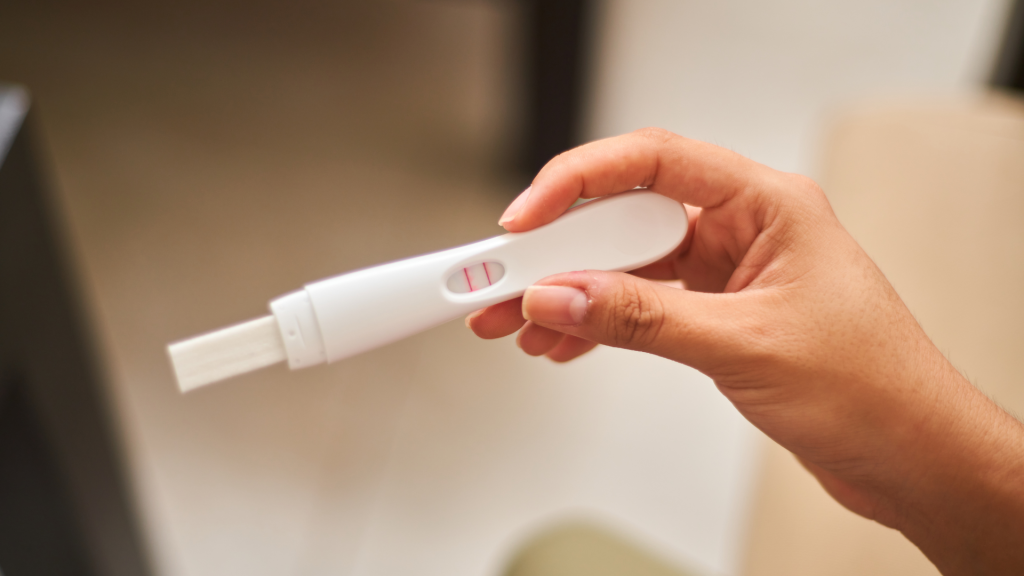What is preconception health?
Preconception health is about getting your body and mind ready for pregnancy. It’s making sure you’re as healthy as possible before you conceive, so you and your baby have the best start. This means managing any health conditions, eating well, staying active, and avoiding harmful habits like smoking or excessive drinking. It’s also about checking for potential risks that could affect your pregnancy or your baby’s health. Taking care of yourself now sets the stage for a smoother, healthier pregnancy later.
What is preconception counseling?
When you’re ready to start or grow your family, it’s recommended to schedule a preconception counseling appointment with your health care provider or midwife. Even if you’ve had previous pregnancies, your provider can assess your health and identify any new risks that may need attention. Ideally, this counseling should be scheduled about three months before you begin trying to conceive.
During preconception counseling, your health care provider will evaluate various aspects of your and your partner’s health. These include:

- Personal Medical History: Discuss chronic conditions (e.g., diabetes, high blood pressure), medications, past surgeries, and pregnancy complications.
- Family Medical History: Share any family history of conditions like diabetes, birth defects, or intellectual disabilities.
- Genetics: Consider genetic screening for inherited disorders (e.g., sickle cell anemia, cystic fibrosis).
- Vaccine Status: Ensure you’re up to date on vaccines like rubella, varicella, and flu. Some vaccines should be given at least a month before conception.
- Virus Exposure: Report any exposure to Zika or COVID-19, as these can pose risks during pregnancy.
- Intimate Partner Violence (IPV) Screening: Screening for IPV is recommended to address safety and well-being.
Pre-pregnancy checkup
Preconception counseling helps ensure you’re in the best health before pregnancy. A pre-pregnancy checkup may include:
- Blood Tests: Check your blood type and screen for infections like HIV or hepatitis that could affect pregnancy.
- Pelvic Exam: Assess the health of your pelvic organs (vagina, cervix, uterus, ovaries) for any issues that might impact conception or pregnancy.
- Pap Smear: Test for cervical cancer or precancerous changes by collecting cells from your cervix.
- Physical Exam: Evaluate your weight, blood pressure, pulse, temperature, and breathing rate to identify any health concerns.
Why is preconception health important?
Preconception health is crucial, as it lays the groundwork for a healthy pregnancy and baby. The months before conception can greatly influence both your well-being and your future child’s health.
Fertility depends on multiple factors:
- Health issues like hormonal imbalances, anovulation (lack of ovulation), and poor egg quality can hinder conception.
- Lifestyle factors such as age, weight, chronic illnesses, stress, and substance abuse also play a significant role.
Taking proactive steps before pregnancy can:
- Improve your chances of conceiving.
- Lower the risk of pregnancy complications and birth defects.
- Support mental health and emotional well-being.
- Help establish healthy habits for your family’s future.
Focus on optimizing nutrition, managing chronic conditions, and adopting a healthy lifestyle to create the best possible environment for conception and a thriving pregnancy.
How to prepare your body for pregnancy
To increase your chances of getting pregnant and having a healthy pregnancy, follow these doctor-recommended practices:
1. Stop Birth Control: Consult your doctor about stopping hormonal birth control, as fertility return times vary. Be prepared for irregular cycles and consider non-hormonal options if you’re not ready to conceive immediately.
2. Track Your Cycle: Use tools like the Natural Cycles app to identify ovulation and your fertile window, as pregnancy is only possible during six days of your cycle.
3. Eat a balanced diet: Focus on fresh fruits, vegetables, lean proteins, healthy fats, and whole grains. Limit caffeine and avoid highly processed foods to support fertility and fetal development.

4. Take Prenatal Vitamins: Start taking folic acid and prenatal vitamins at least one month before conception to reduce the risk of birth defects and support the baby’s development.
5. Exercise Gently: Incorporate activities like yoga, swimming, or walking to boost energy and overall health.
6. Maintain a Healthy Weight: Being underweight or overweight can affect fertility, so work with your doctor to reach a healthy weight.
7. Create a Safe Environment: Avoid exposure to harmful chemicals, radiation, and infections at home and work. Discuss workplace adjustments with your doctor.
What to Avoid:
- Stress: High stress can disrupt your cycle, so incorporate relaxation techniques like yoga or meditation.
- Alcohol: Avoid alcohol entirely, as it can harm fertility and fetal development.
- Smoking: Quit smoking to improve your and your baby’s health.
- Toxic substances: Stay away from chemicals, pesticides, and cat feces.
- Infections: Practice good hygiene and avoid undercooked meat or animal feces.
- Drugs: Avoid hard drugs and cannabis, as they can lead to serious pregnancy complications.
Endnote
Preconception health is essential for a healthy pregnancy and baby. By addressing medical history, lifestyle, and nutrition, and avoiding harmful substances, you can improve fertility, reduce risks, and create the best environment for conception and a thriving pregnancy. Schedule preconception counseling, adopt healthy habits, and make informed choices to set the stage for a successful pregnancy journey.




